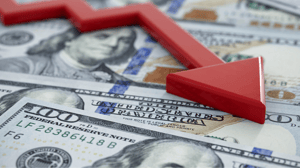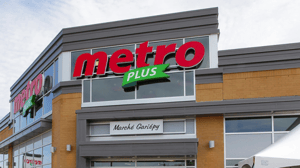STRONG VITAMINS
It's no surprise to retailers that vitamins top the list of the leading private-label categories in supermarkets' health and beauty care departments. That is after one discounts cotton balls, ranked no. 1 in the Private Label Manufacturers' 1999 Private Label Yearbook.In fact, among all mass-market channels, private-label supplements represent a big and profitable chunk of sales versus the brands.
November 15, 1999
Christina Veiders / Additional reporting: Joel Elson
It's no surprise to retailers that vitamins top the list of the leading private-label categories in supermarkets' health and beauty care departments. That is after one discounts cotton balls, ranked no. 1 in the Private Label Manufacturers' 1999 Private Label Yearbook.
In fact, among all mass-market channels, private-label supplements represent a big and profitable chunk of sales versus the brands. Based upon shopper purchasing data tracked by The Hartman Group, Bellevue, Wash., over the 12-month period from August 1998 through the end of July 1999, percent of private label retail purchases in the supplement category breaks down as follows: food, 33%; drug stores, 40%, mass merchandisers, 45% and club stores, 41%.
Private label is often the No. 1 brand in mass-market outlets, said Laurie Demeritt, director of marketing, The Hartman Group. "For the grocery channel, many different store brands make up the market share, but for the other channels there are some definite standouts," she said.
For example, in the mass merchandiser channel, Spring Valley (Wal-Mart's brand), comprises 31% of the channel's 45% share. Similarly, in the club-store channel, Kirkland (Costco's label) accounts for 18% of the 41% share. CVS and Walgreen's are also big players in the drug-store channel, according to The Hartman Group data.
One private-label brand the industry will be watching closely is the co-marketed PharmAssure line, launched a few weeks ago as part of the General Nutrition Cos. and Rite Aid alliance formed earlier this year. The line is being promoted like a national brand, recommended by Rite Aid pharmacists and backed by big advertising dollars. Such joint ventures have the potential to further solidify private label's strength in the supplement category, said industry watchers.
There are several good reasons why private label has dominated the $10 billion and growing supplement industry. "Anybody can offer vitamins," said Brian Sharoff, president of the PLMA, New York. "These are products that have concentrations of ingredients that anybody can produce and they aren't knock offs."
Roy Staszak, marketing manager at Fleming Cos. King of Prussia, Pa., general merchandise division, agreed. "People are educated about doing an ingredient match. They see the ingredient match is the same as the national brand and realize there is a 20% saving in the store brand," he said.
When a hot herb emerges on the scene it is marketed under numerous labels, explained Ray Wallace, director of nonfood for Cub Foods Georgia division, Lithia Springs, Ga. "Shoppers know the herb they want, and it's more important to them to get the actual product than to be concerned with the label," he said.
Other factors contributing to the strength of private label include shifts in distribution trends, consumer education and awareness about supplements, price and convenience.
The supplement market is still relatively young and undergoing development. Consumer experimentation is rampant. Buying patterns are shifting from the die-hard user who shops the natural-health food stores to the mainstream consumer who wants product available at mass market outlets. There is a lot of confusion within a marketplace populated by thousands of bottles that purport to maintain one's health and wellness, said industry observers.
"What is happening," said Demeritt, "there is branding at the product level. It is enough for the consumer to say 'I want Kava, St. John's Wort or Glucosamine.' They have yet to get to the level where they say, 'I want Nature's Way Glucosamine,' because they are knowledgeable and can distinguish a product's quality."
Yet, Demeritt pointed out that in a developing market segment such as nutritional supplements brands do tend to become stronger over time. She pointed to WhiteHall-Robins' Centrum as being voted the No. 1 most trusted brand in a consumer survey. But it has taken time to build that trust and consumer recognition. "Most people taking multiple vitamins have been doing so for 10 years or more so there is strong branding there. Whereas, these other products (herbs) are relatively new." said Demeritt. However, the latest data from Information Resources, Chicago, may indicate the drug companies' support of dietary supplements through such brands as Centrum Herbals, Warner-Lambert's Quanterra and Bayer's One-A-Day Herbals may be having an impact, if but small, on private label share. Data for the 52-week period ending July 18, 1999 shows a slight decline in both private label dollars and units for both food and mass-market retailers. Private label share in food fell a percentage point from 28.8% to 27.8% in dollars and 38.3% to 36.2% in unit volume. Mass-market private label vitamin sales declined from 42.6% to 40.4% in dollar share and 51.3% to 50% in units. Meanwhile, drug stores managed to increase their private label share just slightly. Dollar volume went from 29.4% to 30.3% and units rose from 39.5% to 40.4%
Demeritt pointed out, however, this comes after considerable promotional spending that is not resulting in significant market share increases.
About the Author
You May Also Like






